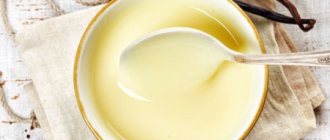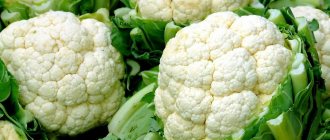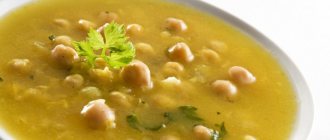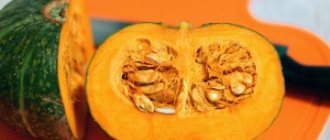In the first weeks after giving birth, a young mother needs not only the congratulations of her household. Neonatologists and child psychologists argue that in order to establish a strong bond between mother and newborn, they both need peace and their own space for communication, and not a noisy crowd of curious people.
It is emphasized that this state of affairs is conducive to the establishment of the breastfeeding process. A balanced diet also plays an important role in the processes of postpartum recovery of the mother and the establishment of lactation.
Multivitamins or... carrots?
In the first weeks after childbirth, a woman should consume a sufficient amount of fluid for normal lactation and eat well, including dairy products, meat, cereals, vegetables and fruits in her diet. If the diet is prepared correctly, there is no need to take special vitamin complexes.
In your search for the healthiest foods, you should pay tribute to the humble but healthy root vegetable - carrots.
Beneficial properties of boiled beets for mother and baby
Useful properties of boiled beets.
Boiled beets do not impair the beneficial properties of breast milk. Beets contain a lot of iodine, which is necessary for the proper functioning of the thyroid gland. For this reason, if a mother regularly eats this root vegetable, then her baby’s thyroid gland will develop correctly, and her hormonal levels will quickly restore.
High iron content promotes faster recovery of the female body after childbirth and reduces the risk of anemia in her baby.
It also contains a large amount of honin, which is involved in the formation of the nervous system of a newly born child. In view of this, regular consumption of boiled beets will help your baby grow up to be a mentally healthy person.
Beets help fight constipation. Moreover, it helps to get rid of this problem not only for the mother, but also for her baby. Substances with laxative properties pass into breast milk in large quantities and help normalize bowel movements in the baby. Do not confuse this with diarrhea. Beetroot does not cause diarrhea in the baby, and in case of constipation, it will facilitate gentle bowel movements.
Carrots and lactation
It is not necessary to look for beneficial substances in overseas fruits and vegetables. Regular carrots can rightfully become an important component of a woman’s healthy diet during lactation.
When breastfeeding, the need for its valuable properties increases many times over, since if the mother’s diet is unbalanced, the substances necessary for milk production will be extracted by the body from its own tissues.
A lack of vitamins can adversely affect the course of the postpartum period, so experts recommend consuming carrots during breastfeeding in any form: boiled, stewed, raw, and also in the form of juice. For better absorption of vitamins, it is useful to season carrot dishes with butter or sour cream.
The opinion that carrots and dishes made from them can directly influence the production of milk in the mammary glands is questioned by scientists. It has been proven that the key to full lactation is sufficient production of the hormones prolactin and oxytocin, as well as regular emptying of the mammary glands and drinking plenty of fluids.
Science has not received evidence of the effect of carrots on the production of these hormones. Therefore, recommendations to mix milk and grated carrots when breastfeeding are simply a tradition.
Carrot dishes for nursing mothers
Recipes for delicious and healthy dishes for young mothers:
- Cottage cheese casserole. Ingredients: 0.5 kg of cottage cheese, 150 g of carrots, 3 eggs, 50 g of sugar, 100 ml of milk and about 100 g of flour. Peeled carrots are grated on a medium grater. Cottage cheese, eggs and sugar are whipped in a blender. Then add carrots, milk, flour and mix. The casserole is baked in the oven at 180 degrees for half an hour. The finished dish is served with sour cream or jam.
- Cutlets. Ingredients: 250 g carrots, 50 ml milk, 1 egg, 20 ml sunflower oil, 30 g flour. Peeled and cut into pieces, the root vegetable is boiled in milk and butter, then pureed is prepared from it. Then the egg and flour are added. The resulting “minced meat” is divided into pieces from which cutlets are formed. They should be rolled in breadcrumbs, placed on a greased baking sheet and baked in the oven for about half an hour (15 minutes on each side).
Are carrots the culprit of colic and rashes?
The dependence of the development of allergic reactions and digestive disorders in children on the inclusion of carrots in the diet of their nurses still causes a lot of controversy among pediatricians, breastfeeding specialists and nursing mothers themselves.
Adherents of opposing points of view provide equally convincing arguments in defense of their views on maternal diet.
In our country, pediatricians often recommend following a certain diet during lactation. The statement that a nursing mother cannot afford to eat anything other than foods included in the list of permitted foods is based on fears of causing colic and allergic reactions in the baby.
Many years of experience show that this statement is not true for everyone.
Indeed, milk is formed in the mammary glands from those substances that enter the mother’s body with food. But how justified is the fear of harming your baby with your own breast milk after eating carrots from a scientific point of view?
Theoretically, an allergic reaction or digestive upset in both the child and the mother can occur even from harmless carrots. In this case, it must be replaced with other vegetables and fruits.
But in practice, such cases are rare, because carrots are not considered by medical science to be strong allergens, such as chocolate, strawberries, eggs, citrus fruits, milk and seafood.
By adding raw or processed carrots to your diet while breastfeeding in reasonable quantities, most women do not risk anything.
Reviews from nursing mothers about eating carrots
The root vegetable is one of the most popular vegetables eaten. Young mothers speak positively about carrots and note that they very rarely cause allergies. The components included in the product improve a woman’s appearance, strengthen hair and nails, refresh the skin, promote rapid weight loss, which is important after childbirth. At the same time, a child with moderate use does not experience any adverse reactions.
Carrots are a tasty, juicy and very healthy vegetable. Whether it is possible to have fresh or boiled carrots during breastfeeding, each mother must decide for herself. The main thing is to maintain moderation and avoid excessive consumption of the product, otherwise the risk of adverse reactions increases not only in the woman, but also in the baby.
Can carrots harm a mother?
If the mother takes too much carrot juice, her skin may turn yellow. This happens due to an excess intake of carotene into the body - the substance that makes carrots orange. If a mother drinks more than a liter of juice a day, her skin also turns orange.
This condition is called carotenoderma and is not dangerous for mother and child. By reducing the consumption of carotene-containing foods, you can easily get out of this state, and then decide whether a nursing mother can combine carrots with other orange-colored vegetables and fruits.
Useful composition
| Vitamins and elements | Effect on the body and beneficial properties | Contents per 100 grams of product |
| A (beta-carotene) | Improves and maintains visual acuity, restores and normalizes the structure of skin and hair, slows down aging | 9 mg |
| B1 (thiamine) | Improves memory, attention, brain and nerve cell activity, stimulates muscle and bone growth, stabilizes appetite | 0.06 mg |
| B2 (riboflavin) | Strengthens the immune system and normalizes the functioning of nerve cells, stabilizes the functionality of the thyroid gland, helps with dermatitis, acne and rashes | 0.07 mg |
| B3 or PP (niacin) | Dilates blood vessels, produces energy, ensures healthy skin and normal heart function | 1 mg |
| B8 (inositol) | Improves concentration and stimulates brain function, helps with stress and fatigue, ensures healthy hair and skin | 29 mg |
| B9 (folic acid) | Maintains the normal state of new cells, which is so important in early childhood, smoothes out the emotional and hormonal background after childbirth | 8 mcg |
| C (ascorbic acid) | Strengthens the immune system and protects against viruses and colds, heals wounds, removes toxins from the body, improves mood and gives vigor | 5 mg |
| E (tocopherol) | Normalizes hormones, slows down aging and heals tissue, reduces fatigue and prevents cancer | 0.6 mg |
| Calcium | Promotes the growth and strengthening of teeth, nails and bones, helps with allergies and inflammation | 51 mg |
| Potassium | Regulates water balance and heartbeat, supplies the brain with oxygen | 200 mg |
| Sodium | Provides water and salt metabolism, produces gastric juice, dilates blood vessels | 21 mg |
| Magnesium | Normalizes the functioning of muscles and nerves, strengthens teeth, helps with indigestion, prevents the formation of stones in the kidneys and gall bladder | 38 mg |
| Phosphorus | Promotes normal growth and condition of teeth and bones, ensures the metabolism of proteins, fats and carbohydrates, improves memory and brain function | 55 mg |
| Iron | Forms hemoglobin in the blood and protects the body from bacteria, ensures material metabolism | 0.7 mg |
| Iodine | Stimulates brain activity, neutralizes harmful microbes, burns excess fat | 5 mcg |
| Cobalt | Normalizes the activity of the pancreas, synthesizes DNA and ensures metabolic processes in the body | 2 mcg |
| Copper | Improves mood, normalizes the condition of skin and hair, participates in the processes of growth and reproduction | 80 mcg |
| Manganese | Regulates blood glucose levels and prevents diabetes, reduces cholesterol and is involved in cell division | 0.2 mg |
| Fluorine | Strengthens the immune system, bone and dental tissue, prevents caries and osteoporosis | 50 mcg |
| Zinc | Forms the bone skeleton, quickly heals wounds, improves brain activity and hair condition, prevents diabetes and arthritis | 0.4 mg |
How to eliminate colic and rashes in infants if the culprit is carrots during breastfeeding (breastfeeding)?
As for infants, experts believe that no one except the mother herself will answer the question about the dependence of the occurrence of colic and rashes in a breastfed newborn on certain foods in the mother’s diet.
Therefore, she must decide on her own whether a nursing mother can eat carrots.
If the child is calm, the skin is clean, and the stool is normal, there is nothing to worry about.
Otherwise, pediatricians recommend that mothers exclude carrots from their diet and keep a special food diary, recording all the foods and drinks they consume.
Food diary
| date | Product | Baby's reaction (bloating, colic, rash, stool) |
If negative reactions persist despite the fact that carrots are excluded from the diet, the cause is sought in other foods or environmental factors.
In severe cases, when diathesis and colic bother the baby too much, the mother is forced to resort to special diets. Those affected by this problem will have to carefully study the information about what a nursing mother can do in the first month of natural feeding.
Rules for use during breastfeeding
A nursing mother will receive the greatest benefit from the vegetable by consuming it fresh, because many vitamins and minerals are destroyed or lost during heat treatment. For example, B vitamins and ascorbic acid are subject to breakdown, but vitamin A can withstand high temperatures for a short time. These substances are preserved better in the absence of oxygen. Beta-carotene and vitamin K are quite heat stable. Some of the minerals and vitamins go into the broth during cooking. Losses can reach 60–70%, so when preparing root vegetables, it is recommended to follow the following rules:
- If the dish allows, do not chop the carrots finely.
- It is necessary to lower the vegetable into already boiling water.
- To preserve ascorbic acid and B vitamins, you can add a little vinegar or lemon juice.
- It is better to boil or stew root vegetables in small volumes of water, of course, with the exception of soups.
- You need to cook food under the lid.
- It is advisable to limit the heat treatment of carrots to ten minutes.
Roasting is the worst way to preserve nutrients. In addition, with such processing the product may acquire carcinogenic properties.
Despite the benefits of raw vegetables, it is advisable for a nursing mother to introduce carrots into her diet in cooked form. The processed root vegetable contains less fertilizer and is less likely to cause allergic reactions.
It is also better to postpone drinking carrot juice for several months. Since juice is made from a raw product, it contains fewer valuable substances than a whole vegetable.
Video: live healthy - carrots
Recipes for dishes with carrots for a nursing mother
It is recommended for a nursing woman to eat carrots in vegetable soups, salads, and as a side dish for meat or fish. It is better to exclude or limit dishes with the addition of hot seasoning and garlic (for example, Korean carrots), as the baby may refuse to latch on due to the changed taste of the milk.
Carrot cream soup with potatoes
Ingredients:
- carrots - 2 medium pieces;
- potatoes - 2–3 pcs.;
- onion - 1 pc.;
- vegetable or chicken broth - 3 cups;
- a little butter;
- salt and seasoning to taste.
Cooking method:
- Peel and wash the vegetables, cut into medium-sized pieces.
- Sauté the onion in butter.
- Place the carrots and potatoes in the boiling broth and cook until soft (about 10–15 minutes).
- Add onion, salt and seasoning to the soup. Boil for another 2-3 minutes.
- Grind the vegetables with a blender.
- Serve the soup with croutons.
Cream soup with carrots will enrich and diversify your diet during breastfeeding
Cream soup with carrots and cauliflower
Ingredients:
- low-fat chicken broth - 1.5–2 l;
- cauliflower - 500–700 g;
- carrots - 1–2 pcs.;
- soft processed cheese - 3-4 tablespoons.
Cooking method:
- Wash and peel the vegetables.
- Coarsely chop the carrots and separate the cauliflower into florets.
- Place carrots in boiling chicken broth and cook for 5-7 minutes.
- Add cabbage and cook vegetables for about 5 minutes more.
- Remove the soup from the heat, cool slightly and add melted cheese to the broth.
- Then grind the vegetables in a blender until smooth.
- Serve with herbs and croutons.
Cream soup with cauliflower and carrots - a healthy lunch for a nursing mother
Carrot and apple salad
Ingredients:
- carrots - 2 pcs.;
- green apple - 1 pc.;
- olive oil - 1 tbsp. spoon;
- greens to taste.
Cooking method:
- Wash and peel the apple and carrots.
- Grate them on a coarse grater.
- Pour oil, add herbs, stir.
- Serve immediately after preparation.
Carrot and apple salad is recommended for nursing mothers to consume from the second month after birth
Effect on the mother's body
Consumption within acceptable limits (no more than 150 g per day) has the most positive effect, for example:
- Strengthens the immune system and protects against colds and viruses.
- Improves concentration and stimulates brain activity.
- Increases the volume of breast milk.
- Saturates the body with vitamins (A, C, E, group B) and microelements (calcium, magnesium, sodium, iron, phosphorus, potassium, iodine, etc.).
- Burns excess fat.
- Charges you with energy for the whole day.
But abuse of the root vegetable often leads to headaches, nausea and digestive system disorders.
New Year's menu for breastfeeding depending on the age of the child
The age of the child makes its own adjustments to the list of permitted products. If there is a newborn baby in the family, the list is small: porridge (oatmeal, buckwheat), vegetarian soups, boiled vegetables as a side dish, poultry as a main dish. Dessert – oven-baked apples. A holiday salad, for example, can be a combination of boiled carrots, pieces of chicken and stewed onions.
Therefore, New Year's dishes for nursing mothers and recipes are selected taking into account age:
- from 1 to 3 months, beef, fruit and dried fruit compote, sour cream, rice and cheese, fermented milk products, baked lean fish, durum pasta, crackers and dryers are added.
- From 3 to 6 months you can already eat eggs, greens, marshmallows, and marmalade.
- From six months - honey, seafood, juice.
Baby is 1 month old
Even if your baby is very small, you can choose delicious holiday recipes. These can be dishes of baked lean fish or buckwheat with meat, with a side dish of pumpkin or carrots poached with onions and herbs. Another option is soft mashed potatoes. For now, milk, raw fruits (except bananas) and vegetables are prohibited.
Among the options for what a nursing mother can do for the New Year and other holidays:
- Stewed or baked fish.
- Mashed potatoes.
- Chicken salad.
- Boiled chicken breasts.
- Meat stewed in low-fat sour cream gravy.
- Baked chicken.
- One-component salads - for example, from carrots or zucchini.
- Baked apples.
- Potatoes stuffed with minced chicken.
New Year's menu for a nursing mother with a 2 month old baby
When the child is 2 months old, it is allowed to add low-fat cottage cheese, fresh berries and fruits (not red or citrus fruits), and rice milk porridge. Vegetable salads with herbs and cheeses are allowed.
The New Year's menu for a nursing mother with a 2-month-old baby includes more delicious dishes:
- Steamed cutlets, baked turkey meat, fillet with vegetables.
- Boiled or baked potatoes, stewed vegetables, pumpkin puree soup, vegetable stew, rice porridge with milk.
- Sandwiches with cheese.
- Cottage cheese casseroles, grated cottage cheese with fruit.
Baby is 3-6 months old
A three-month-old baby already “allows” his mother to eat nuts, marshmallows, and marmalade. During this period, the woman gradually returns to a full diet, with the exception of allergenic foods.
Allowed:
- Breastfeeding salads for the New Year can be with nuts (except peanuts and pistachios).
- Baked Brussels sprouts, vegetable casserole in the oven, baked cod with cherry tomatoes, risotto with vegetables.
- Hot dishes of chicken, veal, quail, chicken cutlets with steamed zucchini.
- Rice pudding with raisins, oatmeal cutlets, carrot and potato puree soup.
- Fruit drinks, berry pie with cottage cheese, apple muffin, cheesecakes, cookies with buckwheat flour and chocolate.
What to prepare for a nursing mother for the New Year if the child is from 6 months to a year?
If the child is already six months old, the diet can be varied with honey, seafood, juices and herbs. Fried, but not fatty foods are allowed. But priority should be given to boiled and baked foods. You are allowed to try seafood, chocolate and legumes. But you need to experiment in advance, not on the New Year itself. Unlike the New Year's menu for a nursing mother of a newborn, recipes with photos already look much more appetizing.
You are even allowed to serve:
- red fish;
- salads with beans or corn;
- exotic fruits: feijoa, pomegranate, persimmon.
Although eating classic New Year's dishes is not recommended, you don't have to give up a delicious holiday table. With an emphasis on healthy eating, you need to choose appropriate recipes. It could be fish with vegetables with sour cream sauce or pumpkin cream soup. There are also many desserts that will delight a young mother. In addition, thanks to the diet, there is a reason to pamper the whole family with original dishes.










